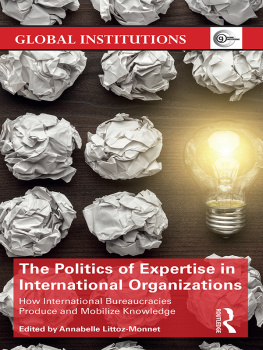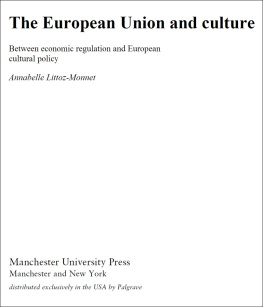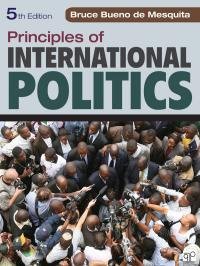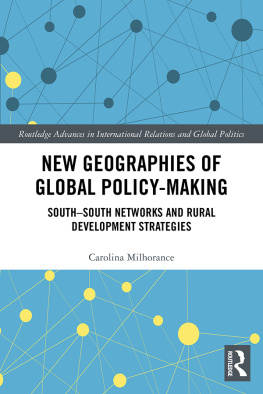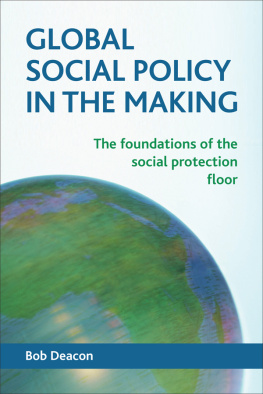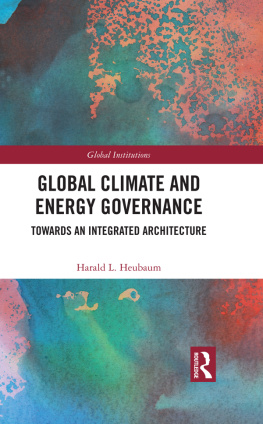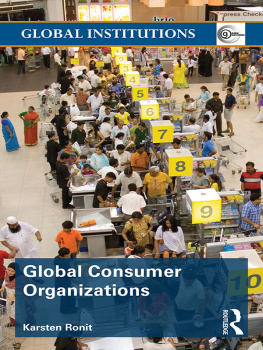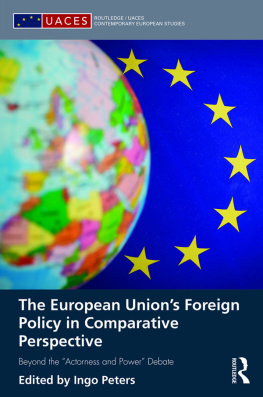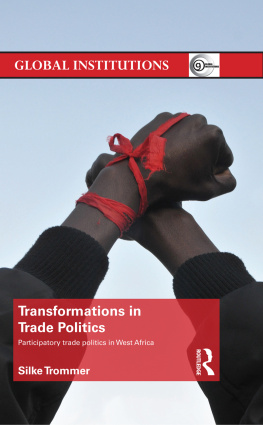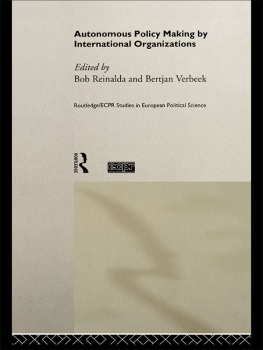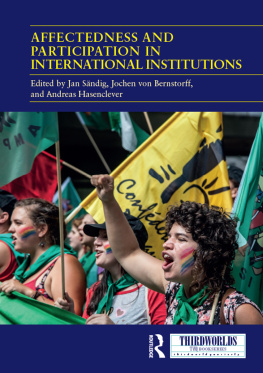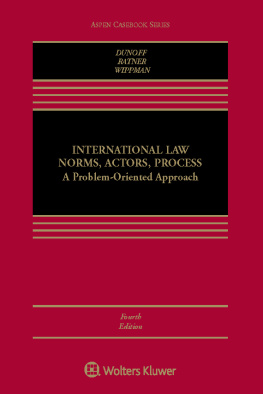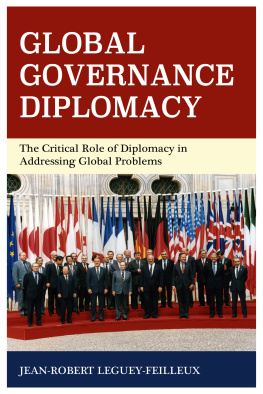The Politics of Expertise in International Organizations
This edited volume advances existing research on the production and use of expert knowledge by international bureaucracies. Given the complexity, technicality, and apparent apolitical character of the issues dealt with in global governance arenas, evidence-based policy-making has imposed itself as the best way to evaluate the risks and consequences of political action in global arenas. In the absence of alternative, democratic modes of legitimation, international organizations have adopted this approach to policy-making.
By treating international bureaucracies as strategic actors, this volume address novel questions:
Why and how do international bureaucrats deploy knowledge in policy-making?
Where does the knowledge they use come from, and how can we retrace pathways between the origins of certain ideas and their adoption by international administrations?
What kind of evidence do international bureaucrats resort to, and with what implications?
Which types of knowledge are seen as authoritative, and why?
This volume makes a crucial contribution to our understanding of the way global policy agendas are shaped and propagated. It will be of great interest to scholars, policy-makers and practitioners in the fields of public policy, international relations, global governance, and international organizations.
Annabelle Littoz-Monnet is an associate professor in international relations/political science at the Graduate Institute of International and Development Studies, Geneva, Switzerland.
Global Institutions
Edited by Thomas G. Weiss
The CUNY Graduate Center, New York, USA
and Rorden Wilkinson
University of Sussex, Brighton, UK
About the series
The Global Institutions Series provides cutting-edge books about many aspects of what we know as global governance. It emerges fromour shared frustrations with the state of available knowledgeelectronic and print-wise, for research and teachingin the area.The series is designed as a resource for those interested in exploring issues of international organization and global governance. And since the first volumes appeared in 2005, we have taken significant strides toward filling conceptual gaps.
The series consists of three related streams distinguished by their blue, red, and green covers. The blue volumes, comprising the majority of the books in the series, provide user-friendly and short (usually no more than 50,000 words) but authoritative guides to major global and regional organizations, as well as key issues in the global governance of security, the environment, human rights, poverty, and humanitarian action among others. The books with red covers are designed to present original research and serve as extended and more specialized treatments of issues pertinent for advancing understanding about global governance. And the volumes with green coversthe most recent departure in the seriesare comprehensive and accessible accounts of the major theoretical approaches to global governance and international organization.
The books in each of the streams are written by experts in the field, ranging from the most senior and respected authors to first-rate scholars at the beginning of their careers. In combination, the three components of the seriesblue, red, and greenserve as key resources for faculty, students, and practitioners alike. The works in the blue and green streams have value as core and complementary readings in courses on, among other things, international organization, global governance, international law, international relations, and international political economy; the red volumes allow further reflection and investigation in these and related areas.
The books in the series also provide a segue to the foundation volume that offers the most comprehensive textbook treatment available dealing with all the major issues, approaches, institutions, and actors in contemporary global governanceour edited work International Organization and Global Governance (2014)a volume to which many of the authors in the series have contributed essays.
Understanding global governancepast, present, and futureis far from a finished journey. The books in this series nonetheless represent significant steps toward a better way of conceiving contemporary problems and issues as well as, hopefully, doing something to improve world order. We value the feedback from our readers and their role in helping shape the on-going development of the series.
A complete list of titles appears at the end of this book. The most recent titles in the series are:
Obstacles of Peacebuilding (2017)
by Graciana del Castillo
Global Environmental Institutions (2nd edition, 2017)
by Elizabeth R. DeSombre
Global Governance and Transnationalizing Capitalist Hegemony (2017)
by Ian Taylor
Human Rights and Humanitarian Intervention (2016)
edited by Elizabeth M. Bruch
The UN Peacebuilding Architecture (2016)
edited by Cedric de Coning and Eli Stamnes
Displacement, Development, and Climate Change (2016)
by Nina Hall
UN Security Council Reform (2016)
by Peter Nadin
International Organizations and Military Affairs (2016)
by Hylke Dijkstra
First published 2017
by Routledge
2 Park Square, Milton Park, Abingdon, Oxon OX14 4RN
and by Routledge
711 Third Avenue, New York, NY 10017
Routledge is an imprint of the Taylor & Francis Group, an informa business
2017 selection and editorial material, Annabelle Littoz-Monnet; individual chapters, the contributors
The right of Annabelle Littoz-Monnet to be identified as author of the editorial material, and of the individual authors as authors of their contributions, has been asserted by them in accordance with sections 77 and 78 of the Copyright, Designs and Patents Act 1988.
All rights reserved. No part of this book may be reprinted or reproduced or utilised in any form or by any electronic, mechanical, or other means, now known or hereafter invented, including photocopying and recording, or in any information storage or retrieval system, without permission in writing from the publishers.
Trademark notice: Product or corporate names may be trademarks or registered trademarks, and are used only for identification and explanation without intent to infringe.
British Library Cataloguing in Publication Data
A catalogue record for this book is available from the British Library
Library of Congress Cataloging in Publication Data
A catalog record for this book has been requested
ISBN: 978-1-138-68725-7 (hbk)
ISBN: 978-1-31554-238-6 (ebk)

